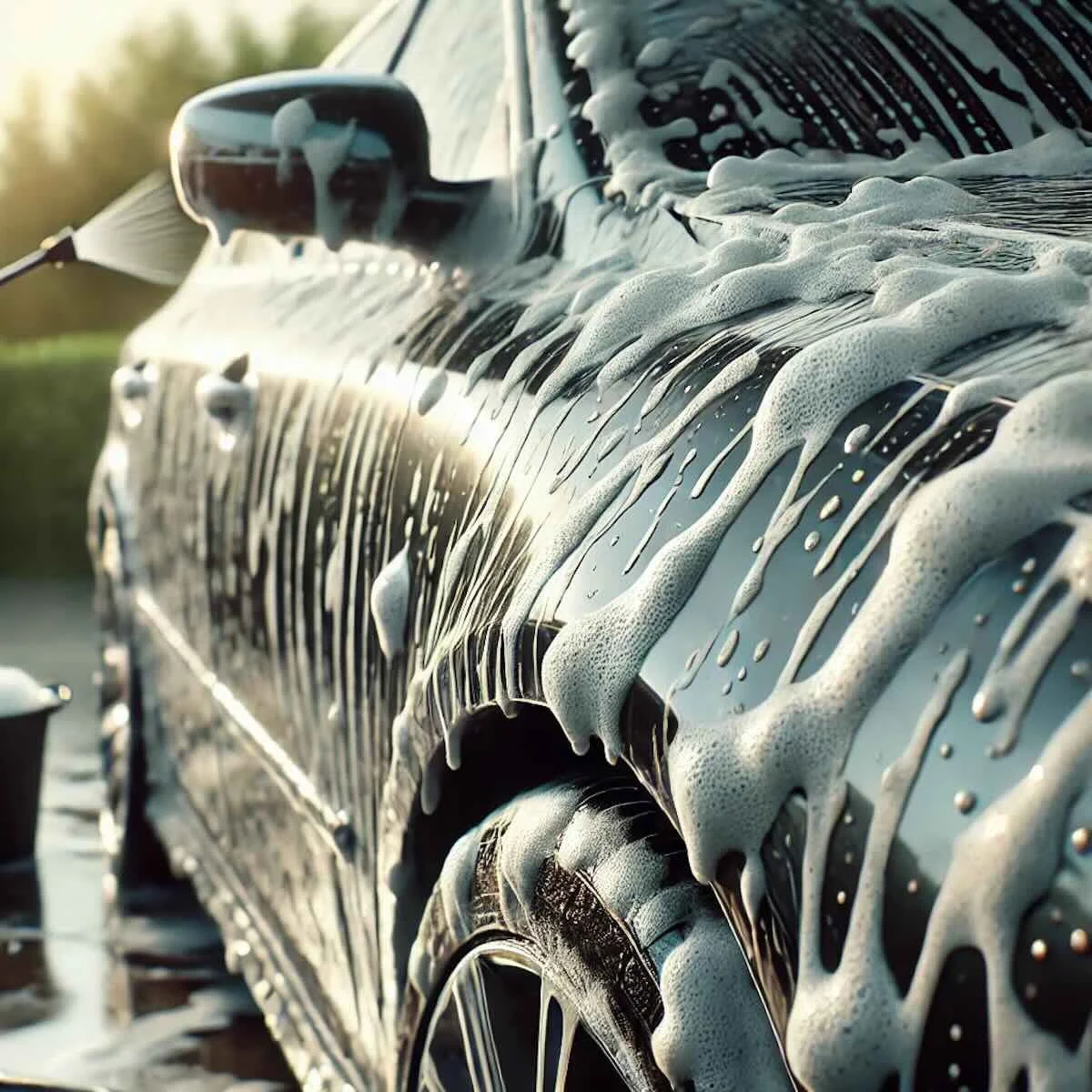Many people wonder if dish soap is good for washing cars. It seems easy. You have dish soap at home. You want to clean your car. But is it really a good idea? Let’s find out.
What Is Dish Soap?
Dish soap is a cleaning liquid made to clean dishes. It helps remove grease and food from plates and pans. It works well in the kitchen. But cars are very different from dishes.

Credit: www.youtube.com
Why Do People Use Dish Soap for Cars?
- Dish soap is cheap and easy to find.
- It cleans dirt and grease well.
- People think it can do the same on cars.
- It makes lots of foam, so it looks like it cleans good.
The Problem with Dish Soap on Cars
Dish soap is strong. It removes grease on dishes but can harm your car’s paint. Car paint has a special layer called clear coat. This layer protects the paint underneath from sun, rain, and dirt.
Dish soap can strip away this clear coat. This means your car paint may fade or get damaged faster. The paint may lose shine and look dull. Over time, small scratches and cracks can appear.
Also, dish soap can dry out the rubber parts on your car. It can make tires and seals crack or become weak. This can cause more damage and cost you money to fix later.

Credit: www.ecocarcareusa.com
What Happens If You Use Dish Soap Once?
If you use dish soap one time, your car may not get much harm. But using it often is not good. The damage comes from many washes over time.
Think of it like this: washing your car with dish soap is like washing your hair with dish soap. One time is okay, but doing it every day can hurt your hair. The same goes for your car.
What Should You Use Instead of Dish Soap?
It is better to use soap made for cars. These soaps clean dirt but are gentle on paint and rubber. They keep your car safe and shiny for a long time.
Car soaps are easy to find. They do not cost much more than dish soap. They are made to protect your car’s surface.
Benefits Of Using Car Soap
- Protects paint and clear coat.
- Does not dry out rubber parts.
- Removes dirt without harming your car.
- Helps keep the car shiny and clean.
How to Wash Your Car Properly
Here are some simple steps to wash your car safely:
- Use a hose or bucket with clean water.
- Use car soap mixed with water.
- Use a soft sponge or cloth.
- Wash the car from top to bottom.
- Rinse with clean water.
- Dry with a soft towel or cloth.
Washing your car this way helps keep it clean and safe.
Other Tips to Keep Your Car Clean
- Wash your car regularly, but not too often.
- Avoid washing the car in direct sunlight.
- Use a separate sponge for wheels and tires.
- Do not use harsh brushes or scrubbing tools.
- Wax your car after washing to protect paint.
Can Dish Soap Be Used in an Emergency?
If you have no car soap and your car is very dirty, you can use dish soap once. But wash the car again soon with proper car soap. Do not use dish soap many times in a row.
Remember, dish soap is not made for car paint. It is better to keep some car soap at home for such times.
Summary: Is Dish Soap Good for Washing Cars?
| Dish Soap | Car Soap |
|---|---|
| Strong and can damage paint | Gentle and protects paint |
| Removes grease well but strips clear coat | Cleans dirt but keeps clear coat safe |
| Can dry out rubber parts | Does not harm rubber parts |
| Cheap and easy to find | Made for car cleaning |
| Not recommended for regular use | Best for regular car washing |
In conclusion, dish soap is not good for washing cars. It can damage your car’s paint and parts. Use car soap for the best care. Your car will stay clean and shiny for a long time.
Always choose the right soap to protect your car. It saves money and keeps your car looking nice.
Frequently Asked Questions
Is Dish Soap Safe For Car Paint?
Dish soap can strip wax and damage paint over time. Use car-specific soap instead.
Can Dish Soap Remove Tough Grease From Cars?
Dish soap removes grease but may harm paint and protective coatings.
Why Do People Use Dish Soap For Washing Cars?
Dish soap is cheap and removes dirt well but lacks paint protection.
How Often Can You Wash A Car With Dish Soap?
Avoid frequent use; limit to rare washes to prevent paint damage.


